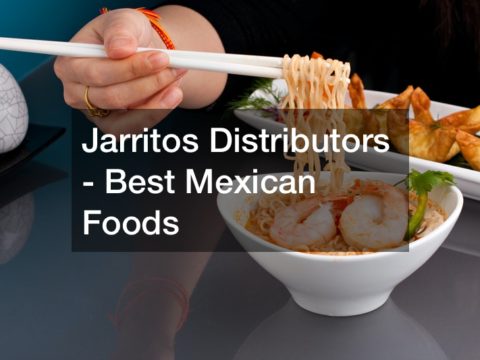Disclaimer: Healthy Lunches. This site provides food and drink content for informational purposes only.
In today’s fast-paced world, many people are turning to prepared meal delivery in Miami, Florida to save time and maintain a healthy lifestyle. These services offer convenience, variety, and balanced nutrition without the hassle of shopping or cooking. The growing interest in this topic has led to two frequently asked questions that we will explore in depth.
How to Choose the Right Prepared Meal Delivery Service?
1. Meal Options and Dietary Needs
Consumers often seek variety and the ability to cater to specific dietary restrictions or preferences such as vegetarian, keto, paleo, or gluten-free options. It’s important to evaluate what each service offers in terms of these needs and to check how flexible their meal plans are.
Some services even provide customization features, allowing customers to adjust meal ingredients according to personal preferences.
Many prepared meal delivery services offer rotating menus, which can be appealing to those who enjoy trying new dishes. As dietary needs continue to evolve, these services have expanded their offerings to include meals that meet specific health goals. It’s beneficial for potential customers to assess whether the service’s available options align with their dietary practices.
Additionally, understanding nutritional information is crucial as it ensures the meal delivery service aligns with one’s health objectives. People often look for meals that balance fresh ingredients with the nutritional content. To cater to different dietary preferences, some services emphasize organic ingredients or low-calorie meals, enhancing the overall appeal.
2. Pricing and Subscription Flexibility
Analyzing cost structures, discounts, and subscription plans, including the possibility of one-time orders versus regular subscriptions, play a significant role in choosing a service. Pricing can vary significantly between services, so it is essential to find a plan that fits your budget. Discounts or promotional offers can make a substantial difference, providing greater affordability.
It’s also vital to look at the flexibility offered by the service in terms of altering or pausing subscriptions. Many services allow customers to skip weeks or change plans without incurring additional fees. This level of flexibility can be appealing to customers who travel frequently or have varied schedules.
The option for customers to test the service via a trial period or a one-time purchase can also help in making an informed decision. Such options provide a low-risk way to evaluate the quality and convenience of meal delivery services. Overall, pricing transparency and subscription flexibility add significant value to these meal delivery offerings.
3. Delivery Coverage and Schedule
It’s crucial to understand the geographical service areas, delivery days, times, and any associated costs or constraints. Not all meal delivery services operate nationwide, so verifying coverage in your location can prevent inconvenience. Some services might have geographic limitations that restrict their customer base.
The frequency and timing of deliveries are also pertinent factors to consider, as these may vary between services. Customers who prefer regular delivery days or specific time slots will need to evaluate whether a service can meet their scheduling needs. Additionally, some services may charge extra for expedited deliveries or certain delivery windows.
Assessing delivery packaging and sustainability practices is equally important, as they contribute to the overall customer experience. Eco-friendly packaging options may appeal to those conscious of their environmental impact. By understanding the logistics, customers can select a service that ensures timely deliveries and responsible packaging solutions.
What Are the Best Prepared Meal Delivery Services Available?
1. Highly Rated Meal Delivery Services
A discussion of the top-rated services based on customer reviews and expert recommendations will help narrow down choices. Personal testimonials and professional reviews often highlight the strengths and weaknesses of each service. Highly rated meal delivery services gain recognition for consistency, taste, and customer satisfaction.
Expert recommendations often consider additional factors such as ingredient quality and meal variety when rating services. Consumers value these insights as they often point to the experience and dedication of a service to meet customer needs. It is advisable for prospective customers to explore multiple sources of reviews to get a balanced understanding.
Services that score high in reviews often demonstrate a commitment to innovation and improvement. Keeping an eye on industry awards or accolades can further inform choices. These factors collectively create an informed decision-making process, ensuring consumers select a reputable and reliable service.
2. Comparison of Meal Plans and Options
A comparative analysis of offerings such as meal types, special dietary options, and customization availability among different services. Diversity in meal plans is crucial for maintaining customer interest and catering to varied tastes. Consumers should compare the flexibility within plans and their ability to accommodate lifestyle or dietary changes.
Meal plan comparisons also involve evaluating the quality and sourcing of ingredients used by each service. Those services that emphasize organic or sustainably sourced ingredients are particularly appealing to health-conscious clients. Furthermore, an understanding of portion sizes and meal diversity can aid consumers in deciding which service offers the best value.
The ability to preview or sample meals can help in assessing menu suitability. Services that offer trial plans or sample meals allow consumers to gauge the quality before committing long-term. By contrasting different services, customers can better align their needs with the offerings available.
3. Sustainability and Ingredient Sourcing
Exploring the commitment to sustainability, the sourcing of ingredients, and the environmental impact of each service to help make a more informed choice. A focus on sustainability can differentiate companies in an increasingly competitive market. Customers are becoming more interested in the origins of their meals, preferring services that prioritize ethical sourcing.
Many services have incorporated sustainable practices by using recyclable packaging and locally sourced ingredients. This shift reflects a growing consumer demand for eco-friendly solutions that minimize waste and support regional agriculture. Consumers looking for low-carbon footprint options should scrutinize the service’s sustainability initiatives.
Ingredient sourcing impacts not only environmental sustainability but also the freshness and nutritional value of the meals. Companies that highlight their partnerships with local farms or purveyors enhance their appeal to conscientious consumers. Such transparency in sourcing can build trust and brand loyalty among customers aware of their impact on the environment.
.



